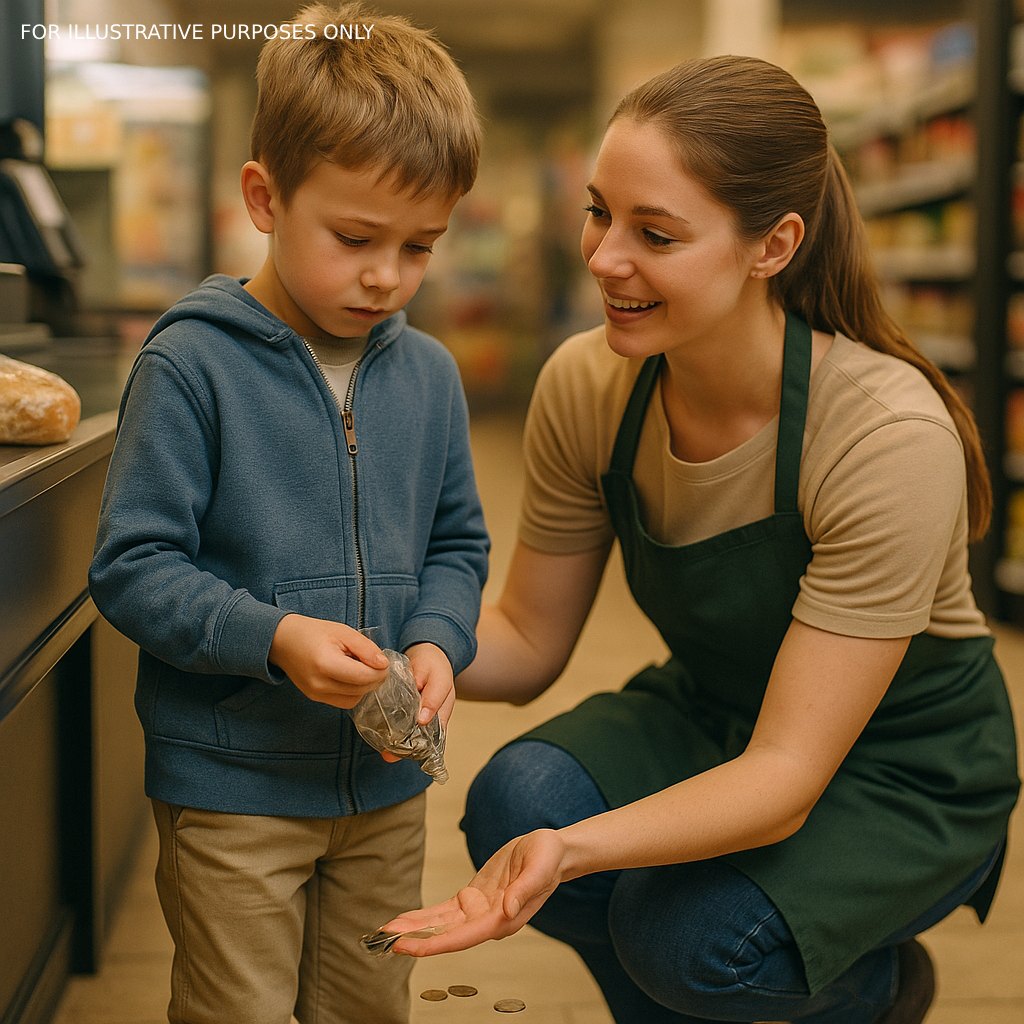
It was a busy afternoon at Greenmart, and cashier Dana had been ringing up customers non-stop for over three hours. The store buzzed with after-school rush and tired parents finishing errands.
Then came a boy — maybe eight years old, standing on his tiptoes to reach the counter. In his hand, a wrinkled list and a sandwich bag full of coins and crumpled bills.
Dana greeted him with a gentle smile. “You shopping for mom?”
He nodded shyly. “She’s sick. I came to get soup, crackers… and tea.”
As Dana scanned the items, the boy fumbled with the bag of change. In his nervousness, it slipped and fell — coins scattered, rolling under shelves and counters.
His face flushed red. He dropped to the floor, scrambling.
Dana knelt down beside him. “Hey, it’s okay. Let’s take a deep breath.”
When they gathered what they could, it still wasn’t enough.
The boy looked heartbroken. “I can put the tea back…”
Dana touched his hand. “You’re not putting anything back.”
She covered the missing amount quietly, handed him the bag, and added a small packet of honey cough drops.
His eyes welled up. “Thank you…”
He left smiling — and she figured that was the end.
But a week later, a woman came into the store holding flowers and a handwritten note. Her voice cracked as she asked for Dana.
“I’m that boy’s mother,” she said. “He told me what happened, and I cried. Not because of the money — but because someone cared enough to see him.”
Dana read the note:
“Thank you for being kind when you didn’t have to. That moment gave my son confidence. And it reminded me that good still exists — even in hard times.”
The woman placed the flowers on the counter. “He talks about you like a superhero.”
That story spread quickly. The store shared it on their page. Community members commented, donated, and some even offered help to the family.
But for Dana, it wasn’t about any of that.
“I just saw a kid trying his best,” she later told a reporter. “That’s all the reason I needed.”

















